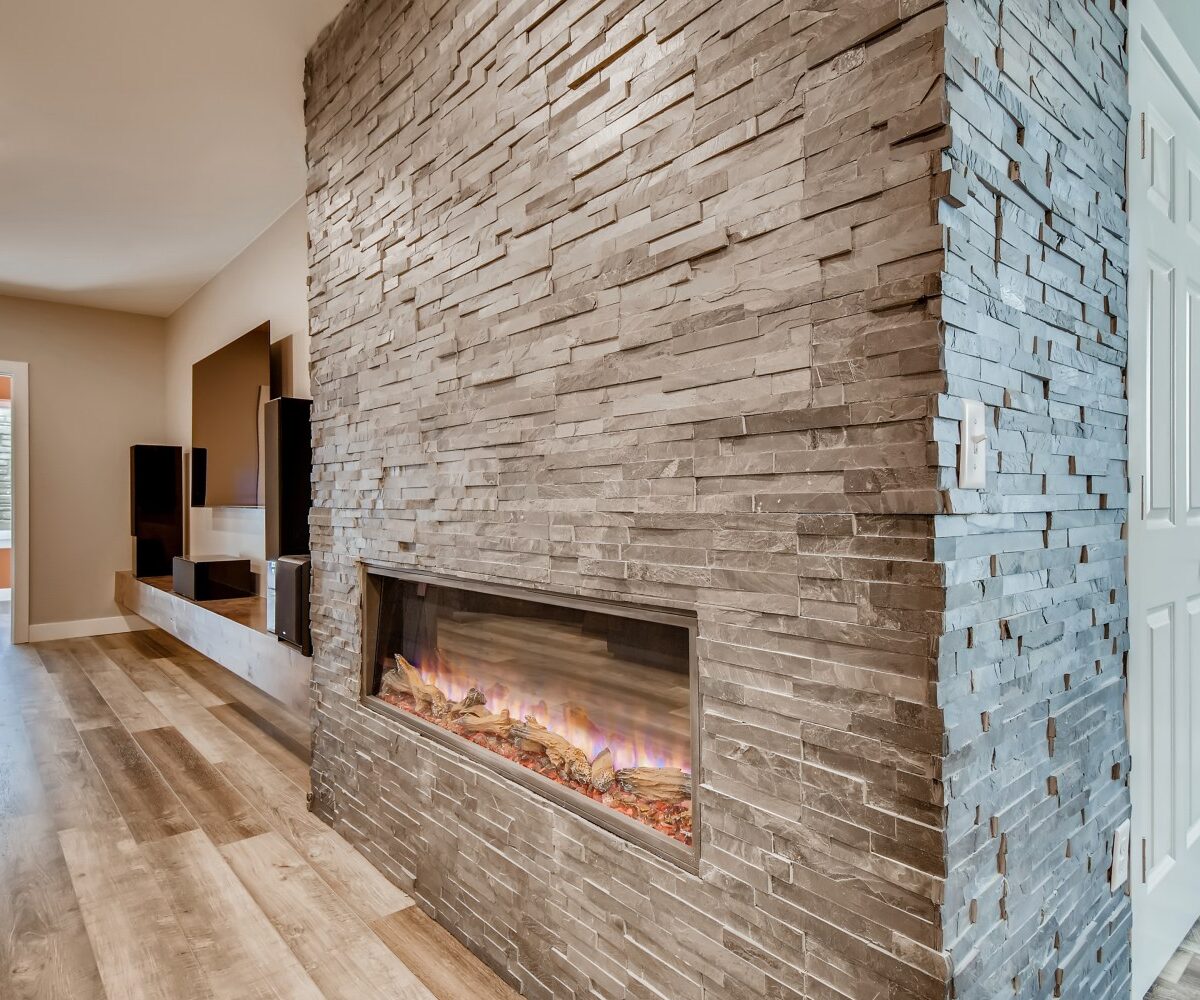Is a Fireplace Allowed in a Basement?
A fireplace in the basement? It may be possible! Before adding the warmth and coziness of a fireplace or wood stove to any finished basement plan, however, be sure to do your homework. Start by checking with the local HOA, fire department and local building code office to ensure that they allow new fireplace construction, and if so, whether permits are required. A reputable residential basement finishing company is an excellent resource for current fireplace code requirements and all fireplace regulations.
Some possible regulations to look into:
- Chimney/Stovepipe
- Ventilation
- Wiring
Becoming familiar with all the possible regulations to install a fireplace in your basement will help narrow down the type of fireplace to choose: wood, gas or electric. Here are some of the pros and cons for each.
Wood burning
Pros: The sight, sound and aroma of a wood fire conjure a homey atmosphere in a way that is difficult to duplicate. A wood-burning fireplace can provide light, warmth and a source of heat for cooking when the power goes out. Wood can be chosen for its scent and how long it burns, depending on need or preference.
Cons: The firewood must be chopped or purchased, and stored appropriately. Fires should never be unattended, for safety reasons; even if the flames are out, warm ashes can reignite. Fireplaces are not efficient heaters unless an insert is added. Heat can be lost through a damper that doesn’t close properly. Annual maintenance is required for safety. Not having an inspection could negatively impact your homeowner’s insurance.
Gas
Pros: Gas fireplaces are clean, efficient and easy to use. Simply flip a switch or press a button and a fire roars to life. When the fire is no longer needed, it is turned off just as easily. There is no soot or ash to clean. Annual service to make sure the unit is operating safely and efficiently is all the maintenance necessary to enjoy the warmth and glow of a fire any time. A gas fireplace will operate, providing warmth, even if the electricity goes out.
Cons: Installation can be pricey, especially if it includes installing a gas line. And while the fire in a gas fireplace may look like a wood fire, it won’t have that same characteristic wood smell or crackling sound.
Electric
Pros: Electric fireplaces are easy to install and are the most economical options for producing heat and light. They are portable (only requiring an outlet to plug into) and can fit in tight spaces.
Cons: Electric fireplaces project an image of a flame, but there is no actual flame. They won’t work during a power outage. They can be a costly source of heat; basically, they are fancy space heaters. Styles are limited so there aren’t many options to fit a particular decor.

